ONE MAN, TOO MUCH FOR ONE NATION
By Elvis Abu
Born in Abeokuta, Nigeria on 15 October 1938. He was a singer, a composer, a multi-instrumentalist, human rights activist and a politician. He was one of Africa’s most controversial musicians. His fearless nature reflected clearly in his music. Even with all the dangers of the time, he continuously attacked the military government of Nigeria through his music.
Fela, came from an influential home. His father, Reverend Israel Oludotun Ransome-Kuti was a protestant minister and a school principal and was the first president of the Nigerian Union of Teachers. His mother, Funmilayo Ransome-Kuti was a leading figure in the anti-colonialist struggle. She was also the first woman in Nigeria to drive a car. Indeed it was a family of pace setters.
In 1958 Fela was sent to London to study medicine but chose to study music instead. While in London, he set up a band he called Koola Lobitos. He renamed his band Africa 70 and, later Egypt 80. In 1960, he married his first wife, Remilekun Taylor. In 1963 he returned to Nigeria and opened a night club; he called it the ‘Shrine.’ His music was a blend of African rhythm with politicized lyrics.
Fela also changed his middle name to Anikulapo (meaning "he who carries death in his pouch"); he said that his original middle name ‘Ransome’ was a slave name. His music was politically motivated as he fearlessly lashed out at the ruling government. He was outstanding for his courage and untiring fight for the common man. This made him one of the major targets for the police and army. Frequently, they sacked his residence and recording studio which he called Kalacuta Republic. During one of the raids, a thousand soldiers attacked the residents of the Kalacuta Republic and his elderly mother was thrown down from the window. Fela sent the coffin of his dead mother to the Dodan barracks and he was inspired by the incidence to write a song titled, ‘coffin for the Head of State.’
At one of his concerts in Ghana, where he performed his hit track titled ‘Zombie,’ a riot broke out which led to his being banned from entering into Ghana.
Fela formed a political party, ‘Movement of the People’ and came out to campaign for presidency in the 1979 election but his candidature was turned down. In 1984 he was jailed and, released after 20 months. In 1989 he released an anti-apartheid album titled "Beasts of No Nation." In this album he attacked the US president Ronald Reagan, UK Prime Minister Margaret Thatcher and South African Prime Minister P.W. Botha. He was fearless indeed. Due to his fearless nature he was nick named ‘Abami eda’ (meaning, ‘a mysterious creature’).
A countless times he was beaten, arrested and jailed. But it seemed that the military brutality only made him tougher. His was a spirit that could never be broken.
Saturday, August 2, 1997 ‘the wonderful creature’ departed from this world after battling with complications due to AIDS. It’s been 13 years after his death and the Shrine still attracts a large crowd on daily basis. It seems the real meaning of the word ‘Shrine’ is now more obvious with the large number of people that trop in there, not just to watch the performance of musicians but for the love and respect they have for the charismatic revolutionary singer.
I remember the word of Socrates. Standing before the jury, shortly before he was sentenced to death, he said to the people of Athens, ‘Men of Athens, pray to God to give you another gat fly like me.’ Fela was a gat fly that Nigerians have to pray to have another of his type.
References: Wikipedia, African Music Encyclopedia.
Monday, February 22, 2010
Subscribe to:
Post Comments (Atom)
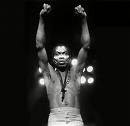
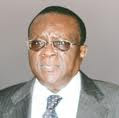
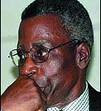
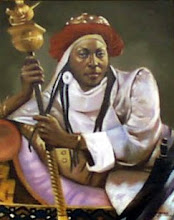





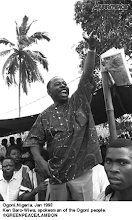

No comments:
Post a Comment